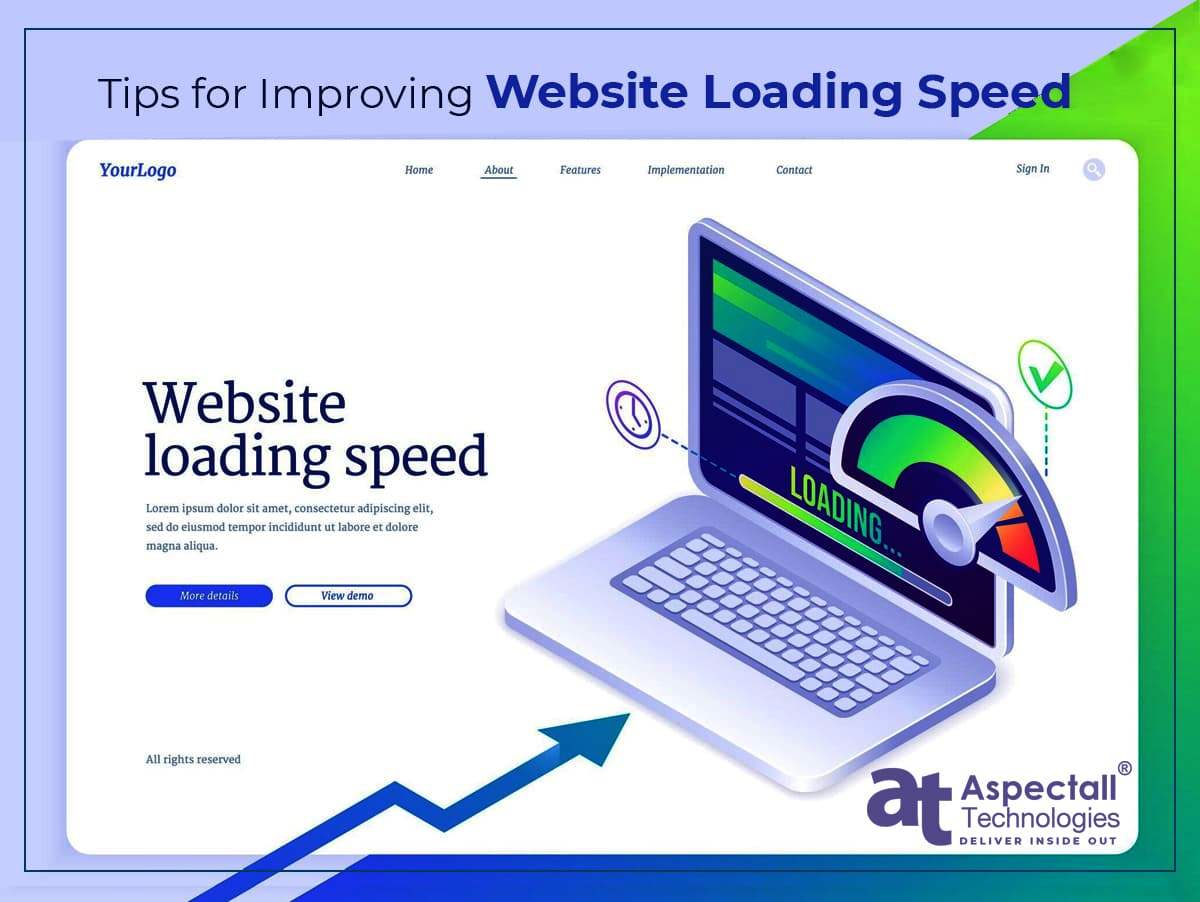Why website loading speed is important?
Website loading speed is crucial for various reasons:
- User Experience: Users are likely to get impatient and quit a website if it takes too long to load. A poor user experience caused by a slow website may reduce traffic, engagement, and conversion rates.
- Search Engine Optimization (SEO): Google and other search engines give priority to websites that load quickly because site quality is a key factor in getting a high ranking on search engine results. In search engine results, slow websites are less likely to perform well, which can have a negative effect on traffic and visibility.
- Mobile optimization: Having a fast-loading, mobile-friendly website is essential because now the majority of web traffic is coming from mobile devices. Slow mobile websites not only provide users with a bad experience, but they also affect their ranks in search engines.
- Conversion Rates: Users are more likely to engage with and make purchases on a website that loads quickly, which can increase conversion rates. On the other hand, a slow website can drive away visitors or frustrate them, which will lower conversions and sales.
In conclusion, a fast-loading website is crucial for a good user experience, better search engine rankings, mobile optimization, and higher conversion rates that help boost your business growth.
Tips for improving website loading speeds
Here are some tips for improving website loading speeds:
Image optimization: Image optimization is essential as large images can cause a website to load much more slowly. Make sure to optimize images by compressing them while maintaining their quality.
- Reduce HTTP requests: HTTP requests are made for each resource on your website, including images, scripts, and stylesheets. Consolidate CSS and JavaScript files, use sprites, and eliminate unused resources to reduce the number of HTTP requests.
- Reduce server response time: The amount of time it takes the server to react to a request might affect how quickly your website loads. Utilize a content delivery network (CDN), caching, and fewer database queries to improve server response time.
- Use a content delivery network (CDN): By distributing content among several servers, a CDN helps to improve the loading speed of websites. As a result, the loading times will be faster due to the reduced distance between the user and the server.
- Use a cache plugin: Caching can help improve website loading speeds by storing frequently accessed data and serving it to users quickly. To improve website performance and reduce server load, use a caching plugin.
- Minimize JavaScript and CSS files: Large JavaScript and CSS files should be kept to a minimum size because they can slow down a website’s loading time. Reduce those files by removing the unnecessary extra code and whitespace.
- Optimize Web fonts: Web fonts should be optimized because they can also affect website loading speeds. Optimize the web fonts with appropriate font weights and styles and limit the number of fonts used.
These tips will help you considerably increase website loading times, which will enhance the user experience and search engine rankings.
As a web development company, they need to focus on some important steps to improve website loading speed. We have discussed some important steps to enhance the loading speed of a website. To get website development services, you need to check the website’s loading speed. If your website’s loading speed is slow, it can have a number of negative consequences, including a negative impact on user experience, conversion rates, exposure in search results, brand perception, and overall business performance. To deliver a great user experience and accomplish the objectives of your website, it is essential to emphasize website loading speed. A fast loading speed of your website helps to improve the positive user experience, which leads to an increased conversion rate and business growth.
Conclusion
Overall, website loading speed is a critical factor that helps to provide a positive user experience, optimize for search engines, and increase conversion rates. However, you can increase your website loading times by optimizing images, reducing HTTP requests, decreasing server response time, caching, minimizing CSS and JavaScript files, and optimizing web fonts. By giving priority to your website’s loading speed, you may boost user interaction, improve search engine exposure, and increase the website conversion rate, which helps boost your business growth.


